

SUBSCRIBE TO OUR FREE NEWSLETTER
Daily news & progressive opinion—funded by the people, not the corporations—delivered straight to your inbox.
5
#000000
#FFFFFF
To donate by check, phone, or other method, see our More Ways to Give page.


Daily news & progressive opinion—funded by the people, not the corporations—delivered straight to your inbox.
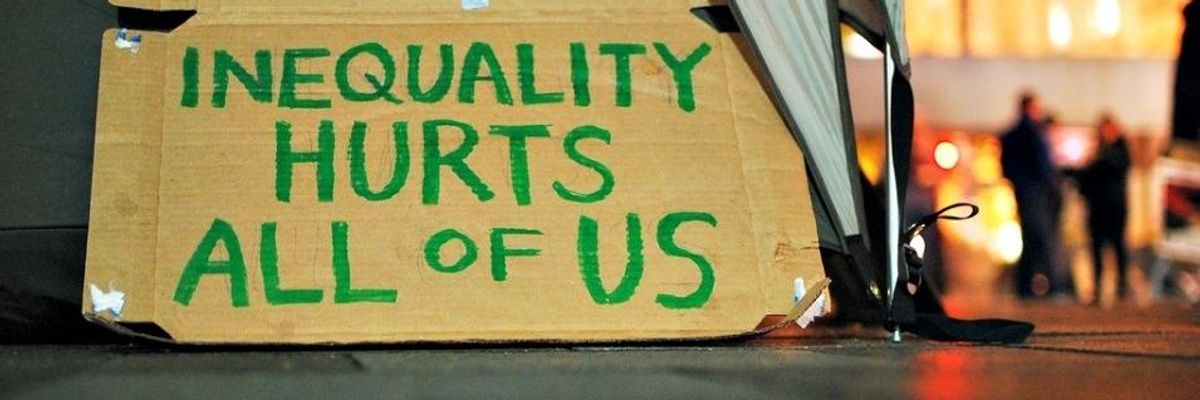
Twelve charts about American inequality, compiled by the Economic Policy Institute, depict data about issues that include stagnant wages and wealth gaps based on race. (Photo: Dean Chahim/flickr/cc)
On the heels of congressional Republicans pushing through a tax plan that experts warn will further exacerbate rampant inequality across the United States, a dozen charts from the Economic Policy Institute on Thursday reveal how vast inequities "permeate all areas of American society," from stagnant wages and wealth gaps based on race to poor educational opportunities for children from lower-income families.
"Unfortunately the policy focus on the last year, culminating in the end-of-year passage of massive tax cuts for corporations, addressed nonexistent problems rather than the real problems we face," lamented EPI in a statement alongside the charts.
The data displayed in EPI's 12 charts show how union membership impacts wages, how Congress has failed with regard to the federal minimum wage, and how the corporate tax rate, which was just drastically reduced under Trump and the GOP's tax plan, has actually impacted businesses' profits. One chart demonstrates how significant cuts to safety net programs--seen as congressional Republicans' next major target--will force millions of Americans into poverty.
"For example, eliminating food stamps would push 3.6 million people, including 1.5 million children, into poverty, as measured by the Supplemental Poverty Measure," EPI notes. "This cut alone would raise the total number of people in poverty to more than 48 million."
Other key findings include:
Here they are:
1. When workers have more leverage, income growth is more equal.
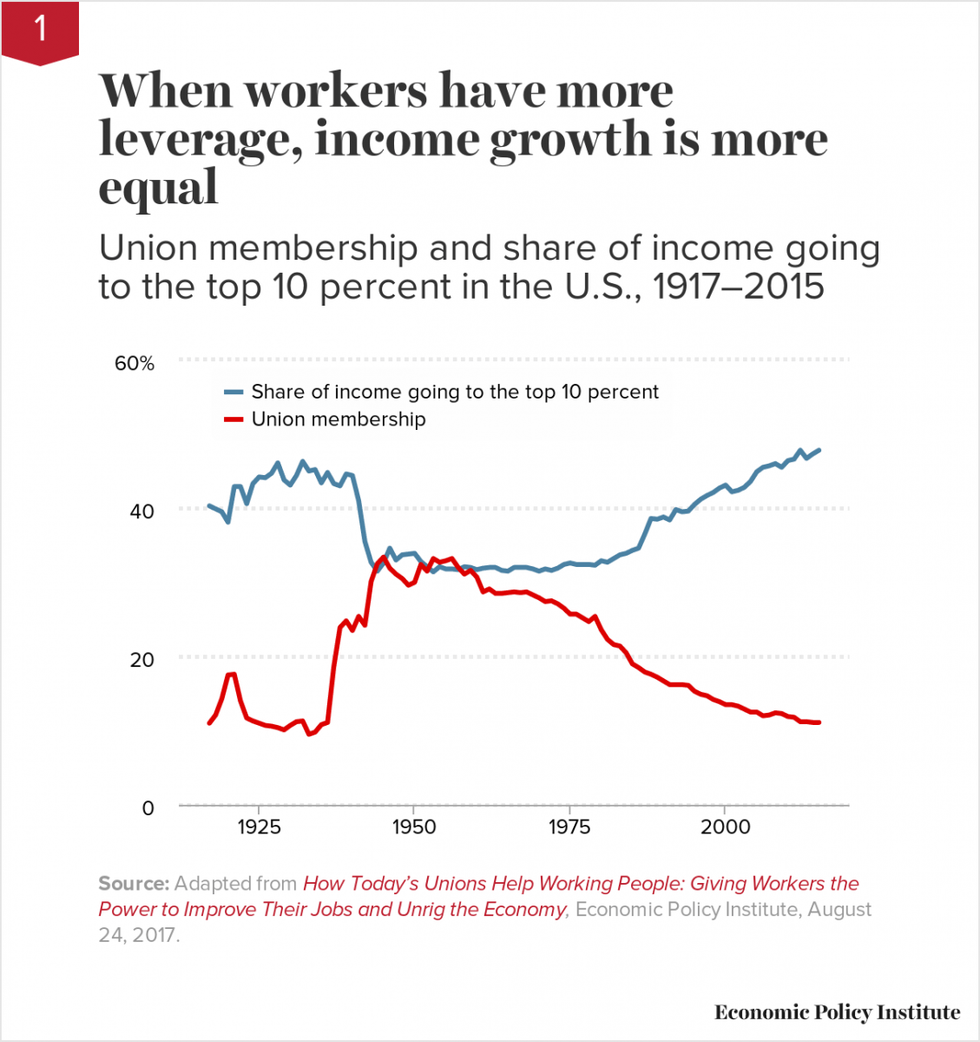
2. Working people saving for retirement are losing billions as the administration delays a rule protecting them against financial advisers with conflicts of interest.
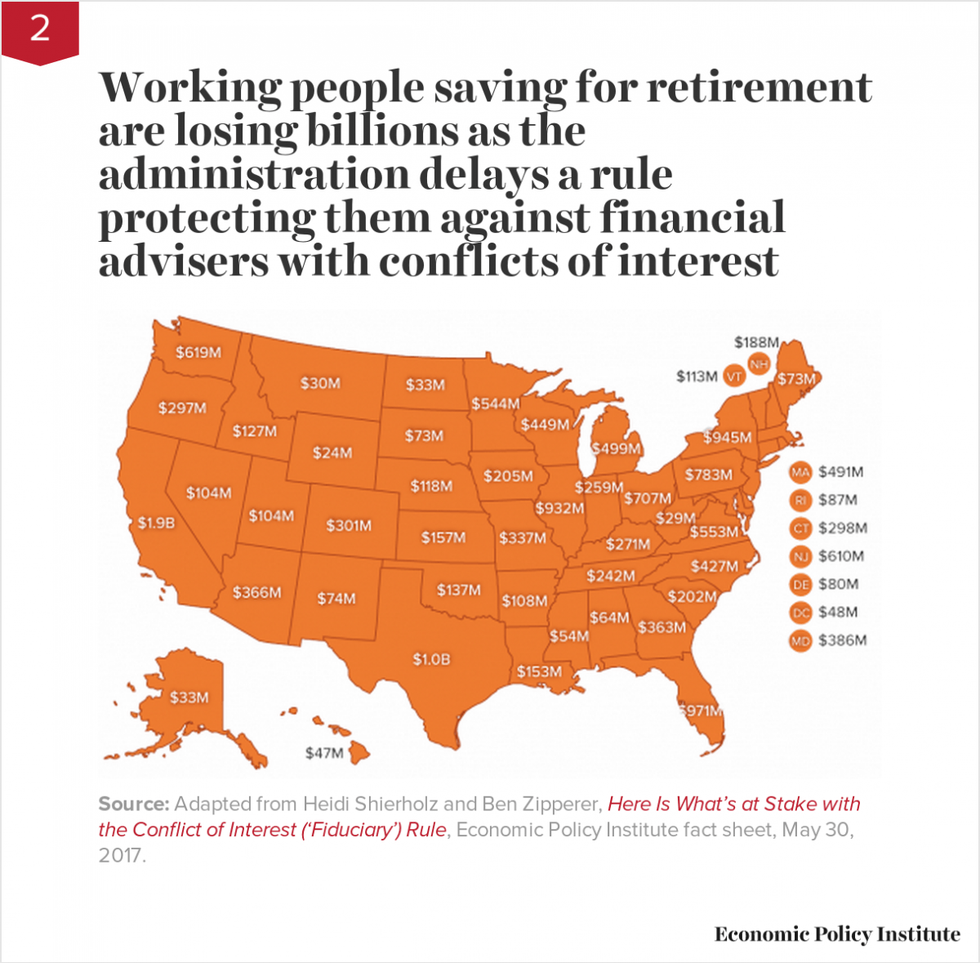
3. The U.S. economy can afford a $15 minimum wage.
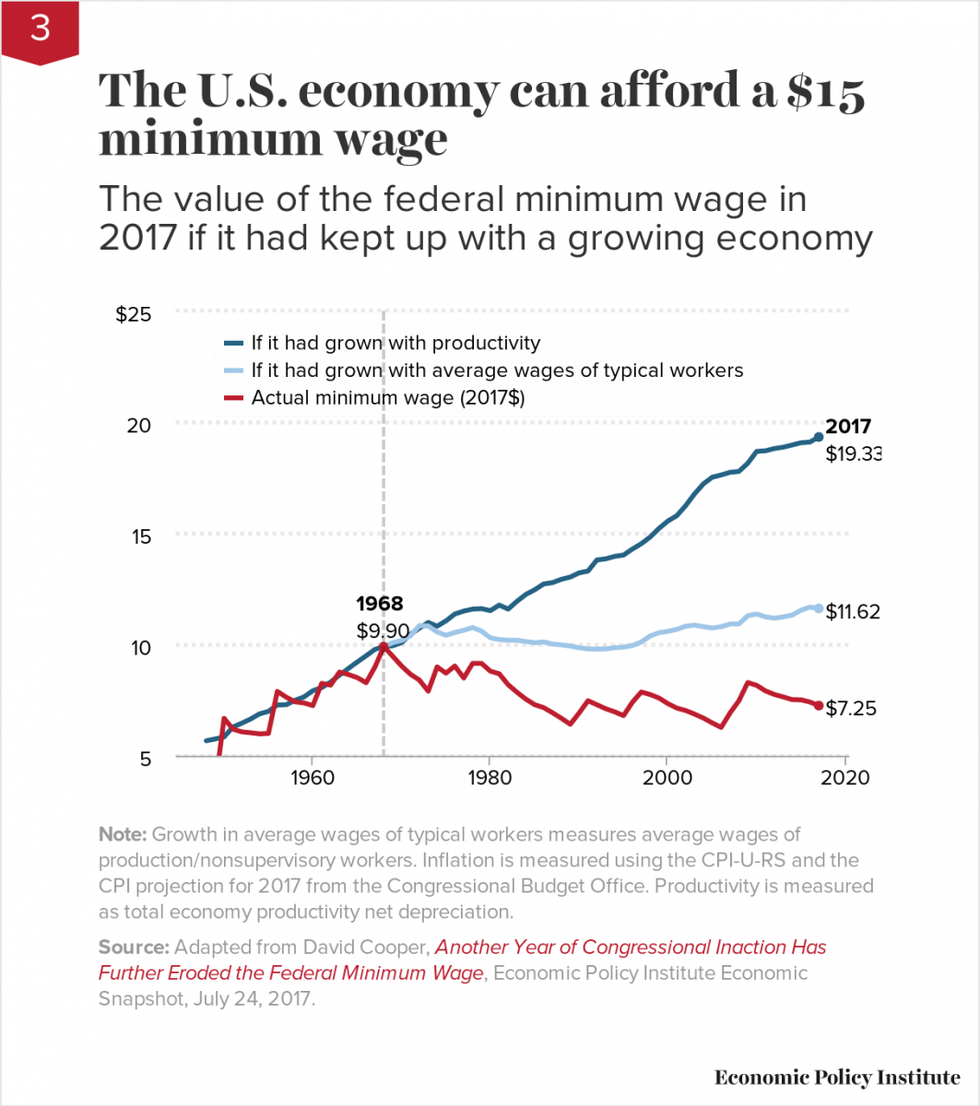
4. The U.S. economy is not suffering from "too high" corporate taxes.
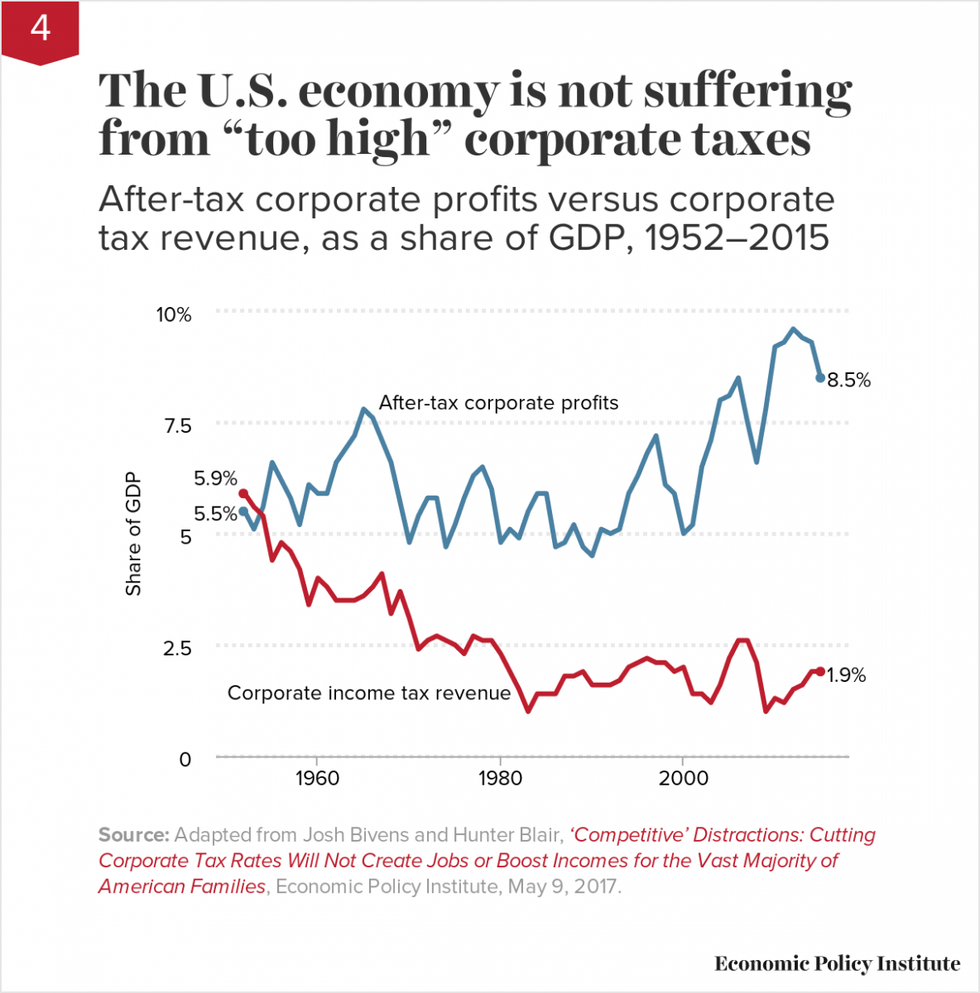
5. Cuts to social programs would push millions of Americans into poverty.
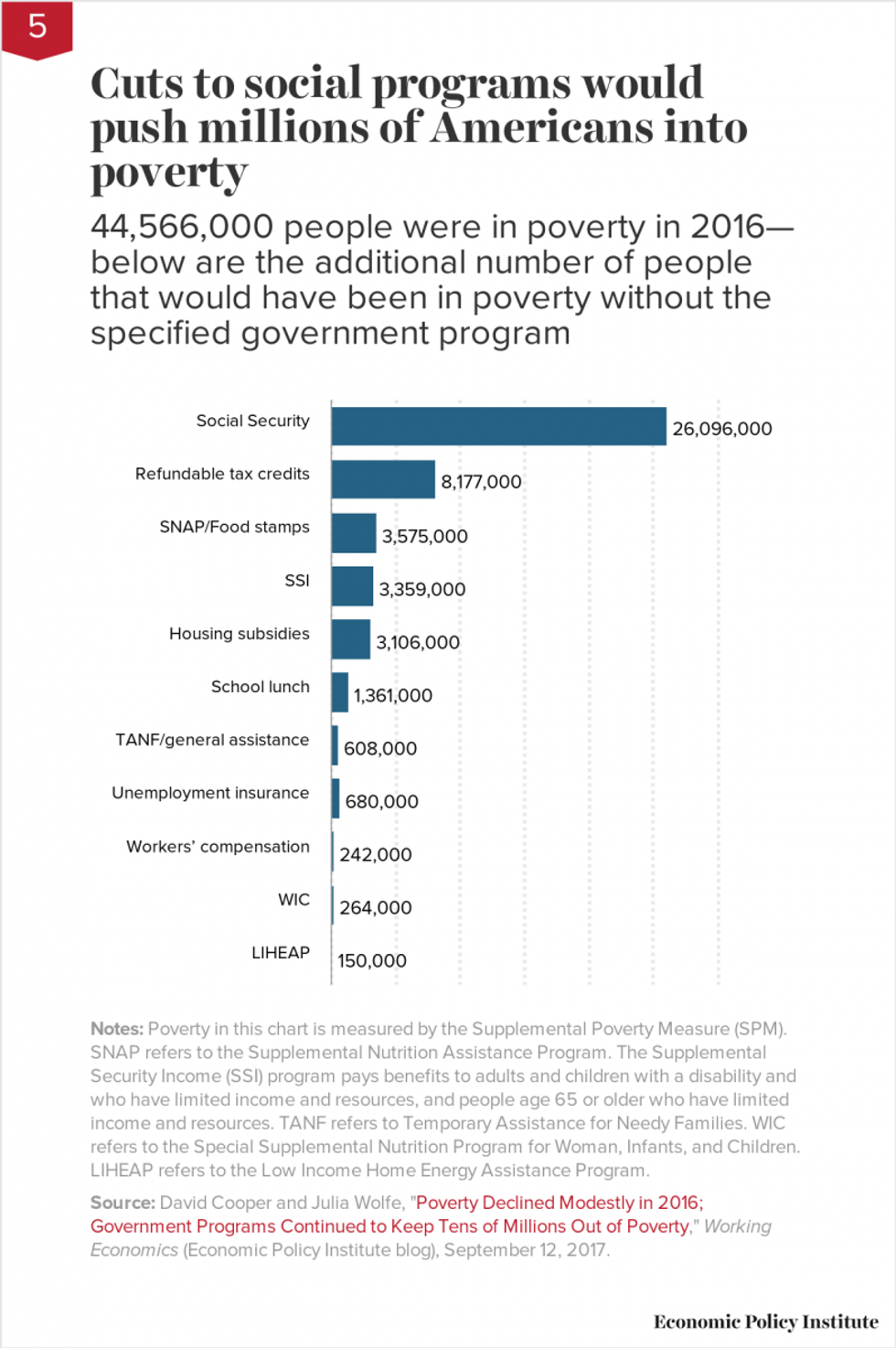
6. The racial wealth gap is the clearest legacy of past discrimination in housing markets.
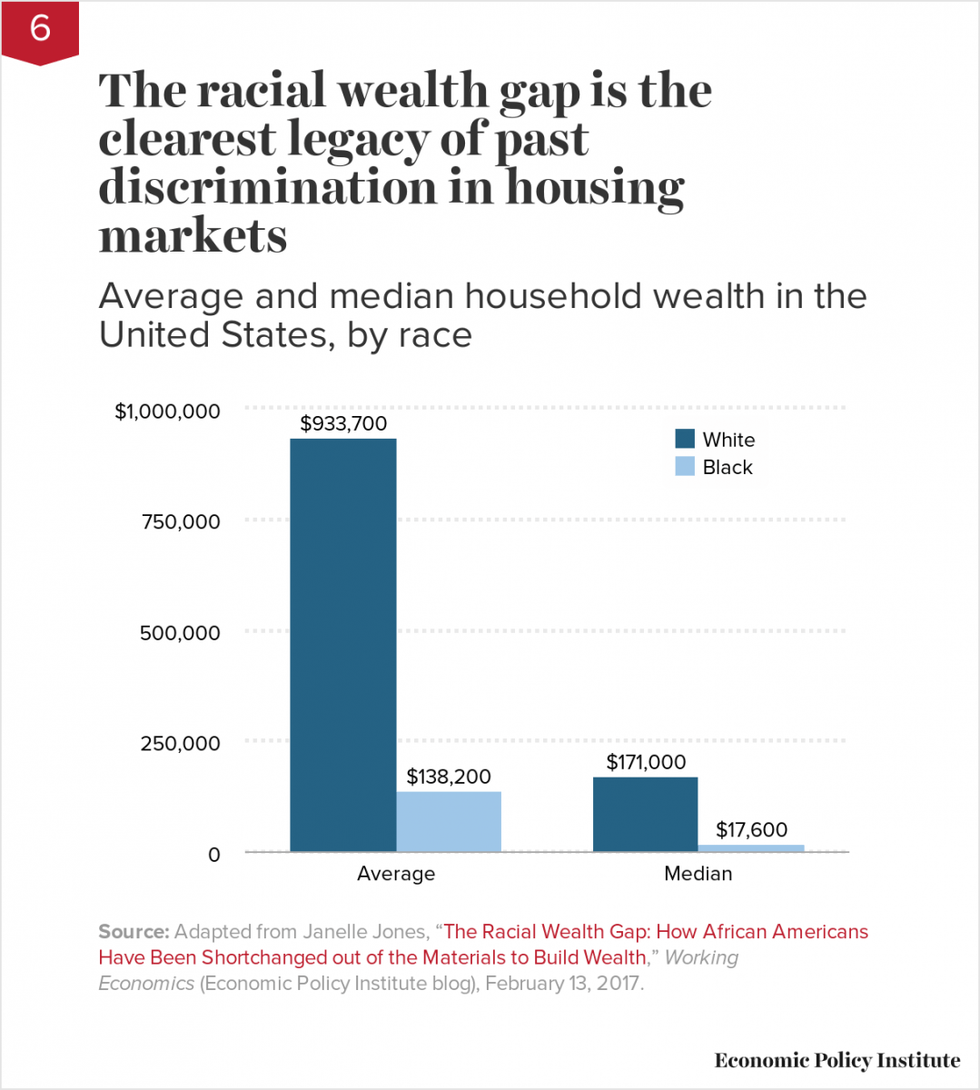
7. Gender and racial pay gaps are not simply a function of voluntary occupational choice.
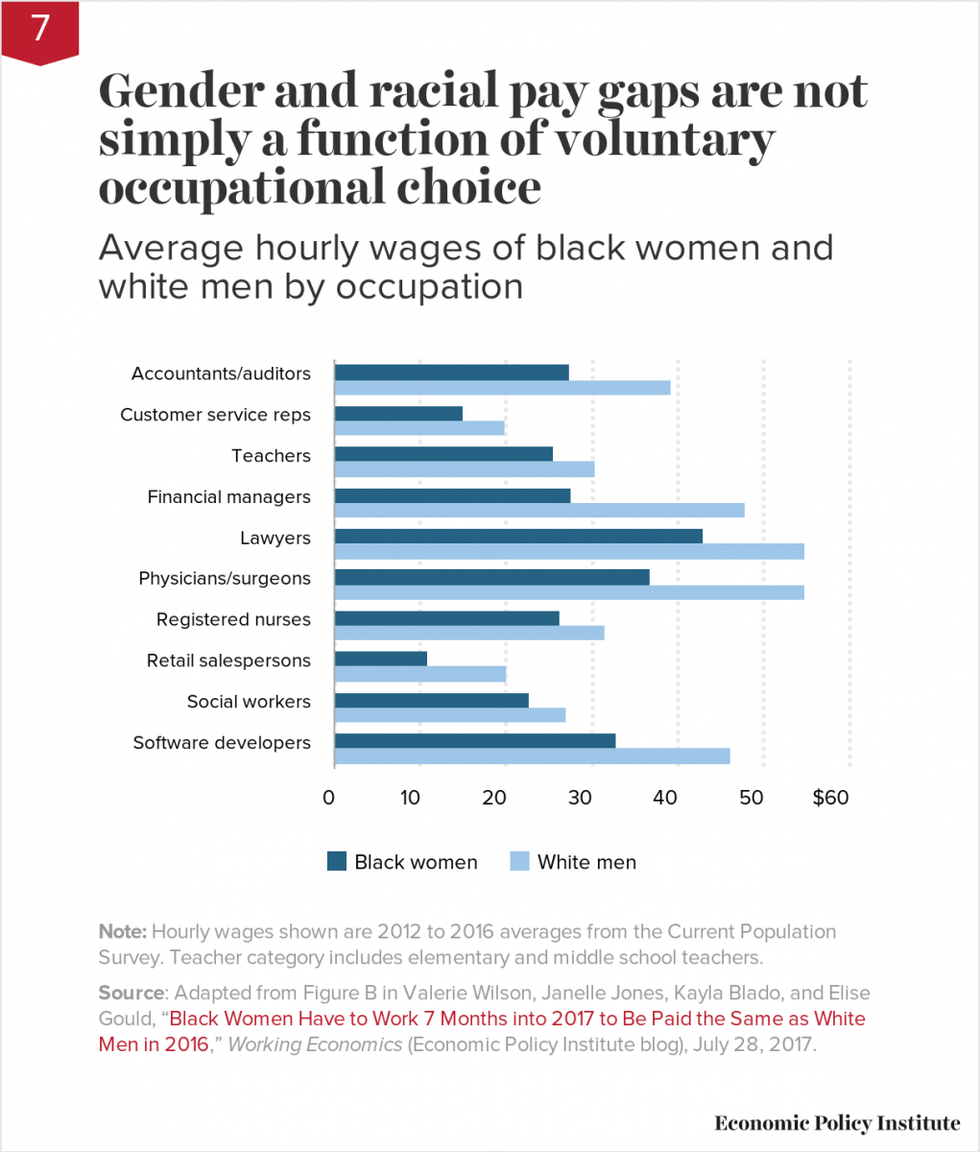
8. Steady increase in the share of prime-age adults with jobs was underway before the current administration took office.
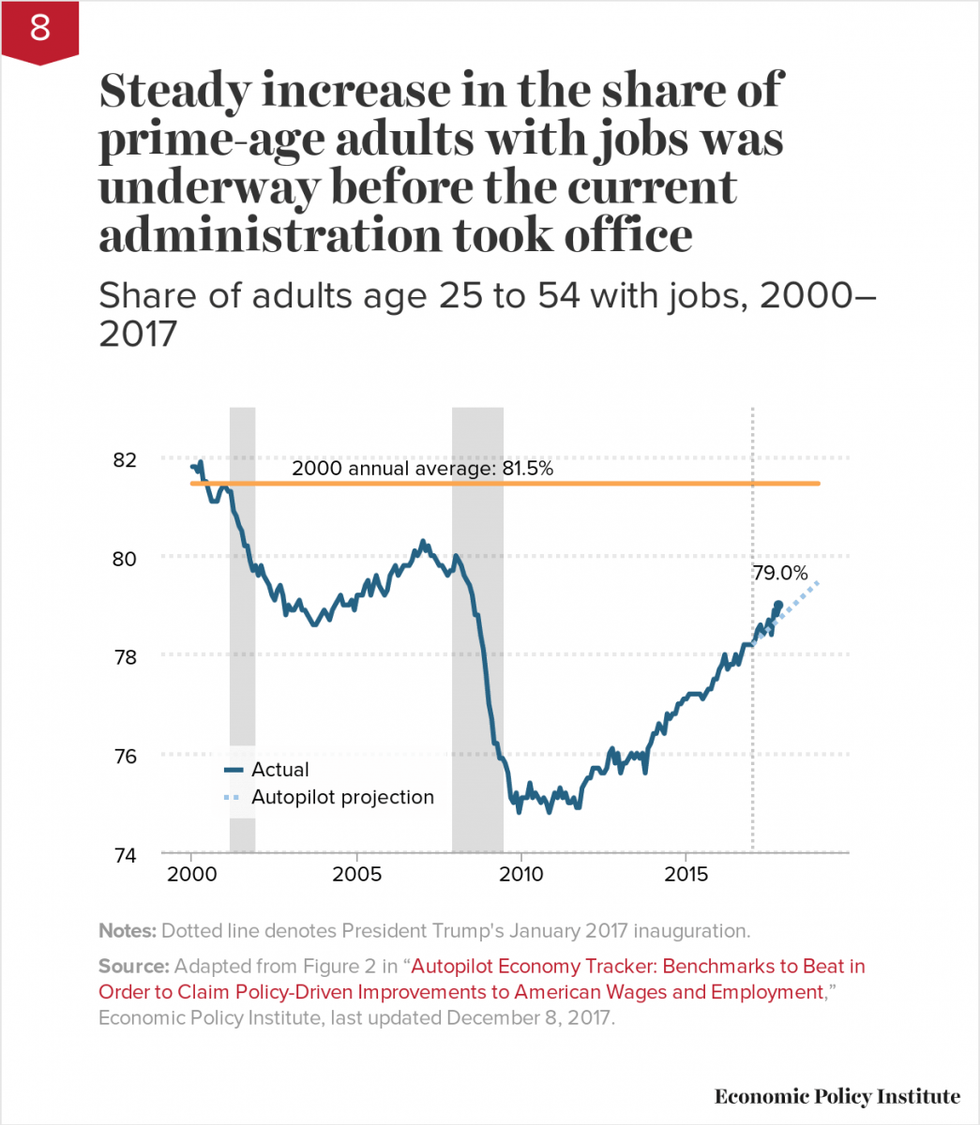
9. Monthly private-sector job growth was slower in 2017 than previous years.
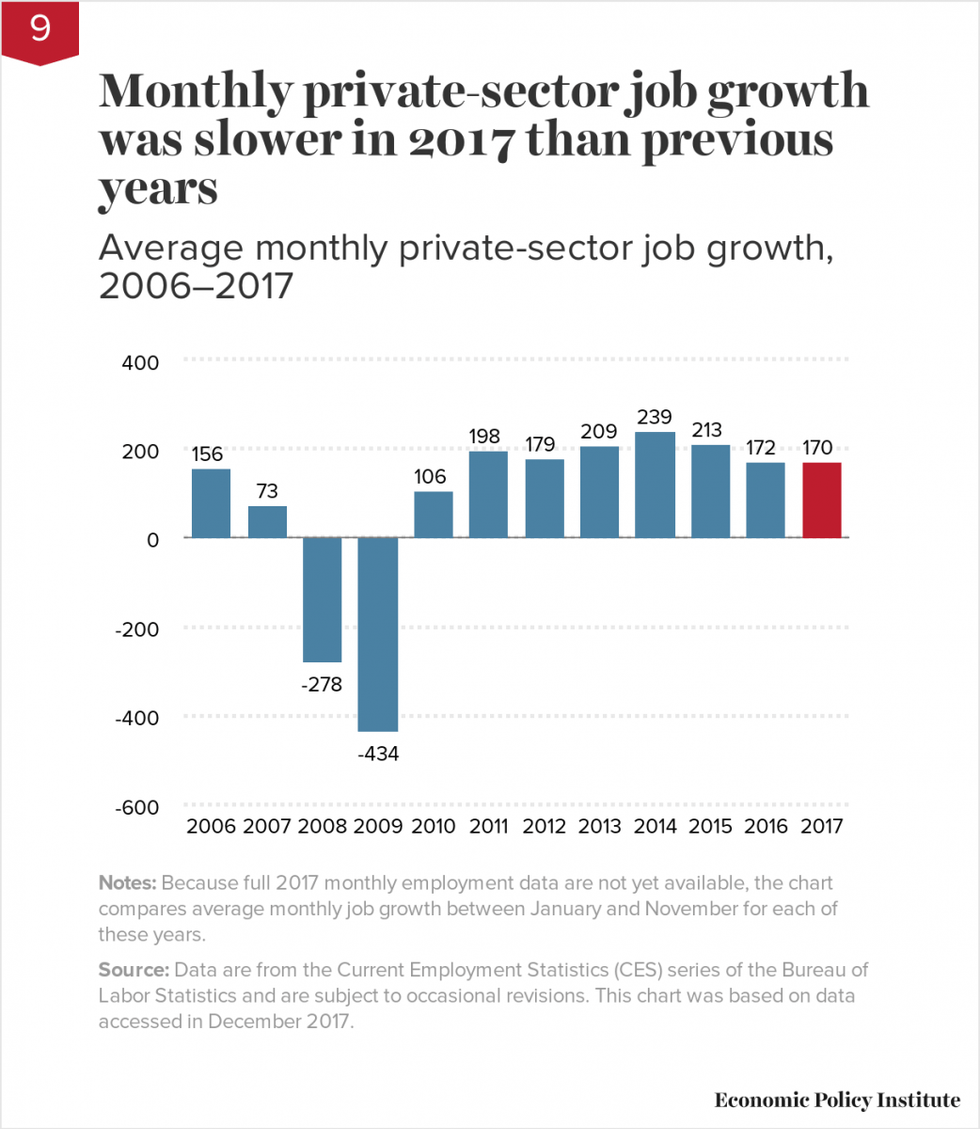
10. Median household income made historic gains from 2014 to 2016.
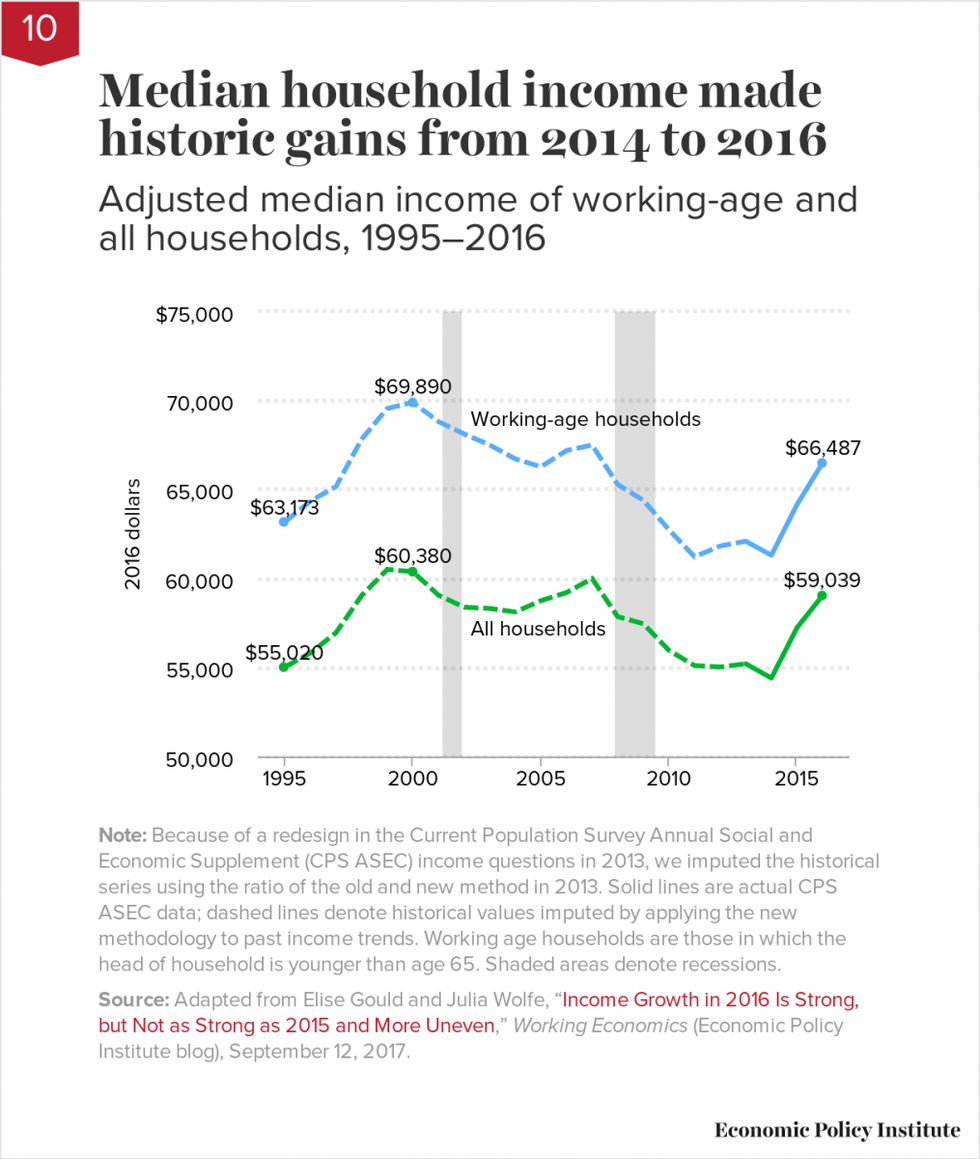
11. Income-based skills gaps are present in kindergarten.
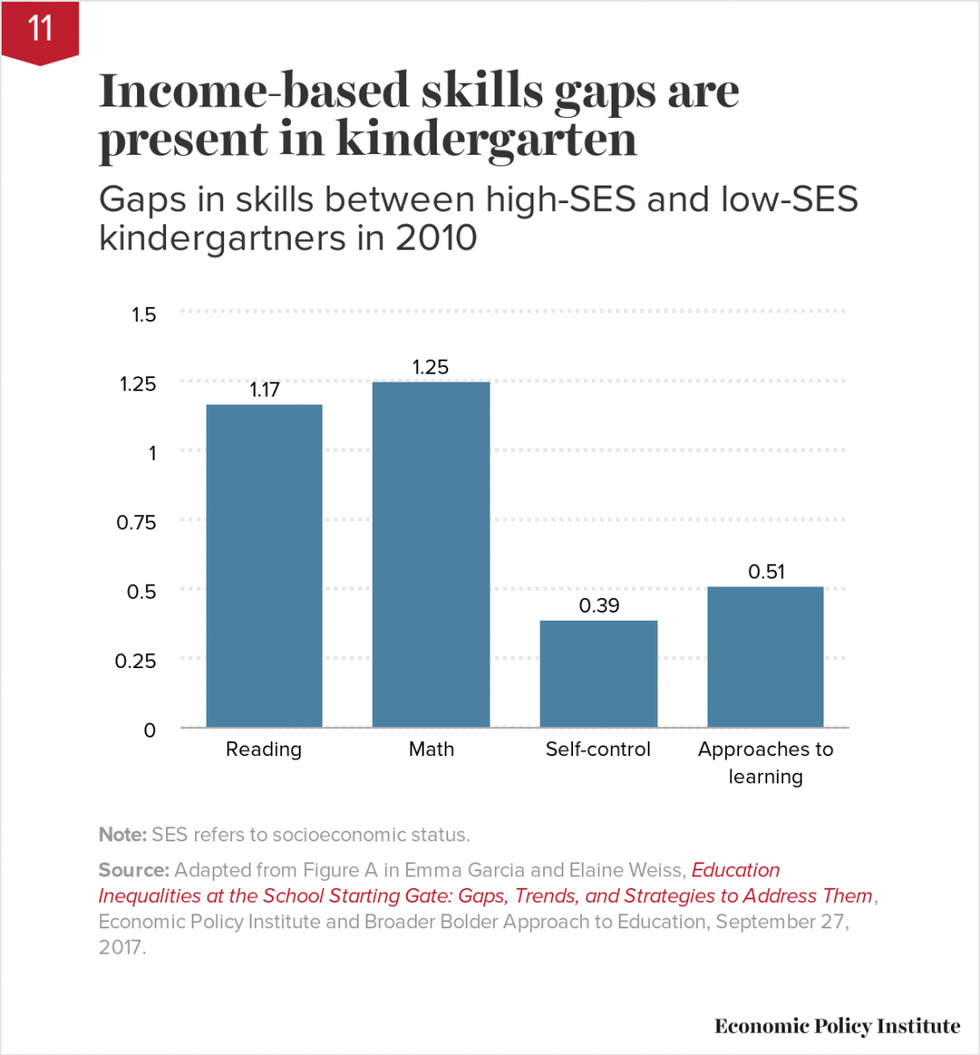
12. City governments are raising standards for working people--but too often state legislators are lowering them back down.
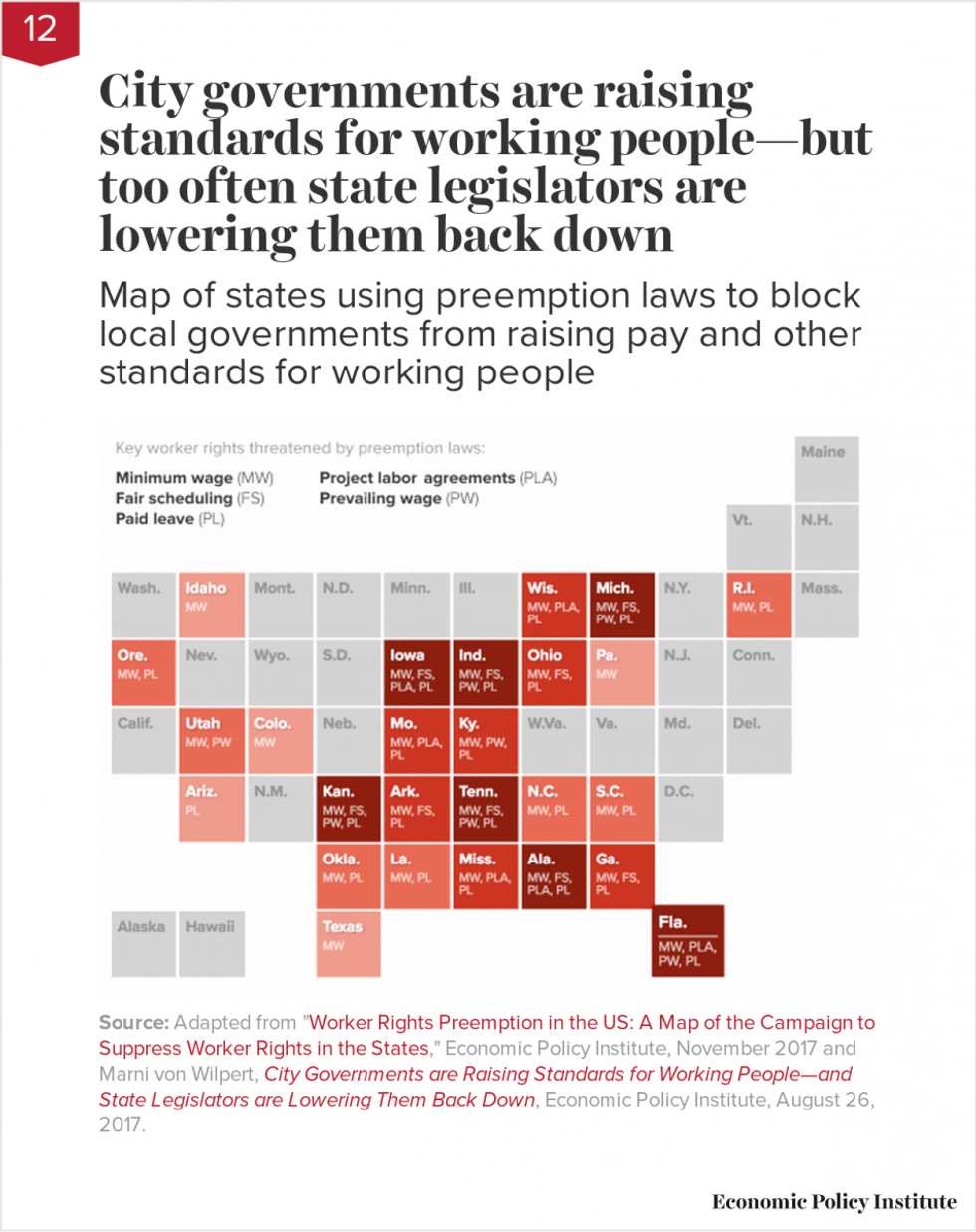
Dear Common Dreams reader, The U.S. is on a fast track to authoritarianism like nothing I've ever seen. Meanwhile, corporate news outlets are utterly capitulating to Trump, twisting their coverage to avoid drawing his ire while lining up to stuff cash in his pockets. That's why I believe that Common Dreams is doing the best and most consequential reporting that we've ever done. Our small but mighty team is a progressive reporting powerhouse, covering the news every day that the corporate media never will. Our mission has always been simple: To inform. To inspire. And to ignite change for the common good. Now here's the key piece that I want all our readers to understand: None of this would be possible without your financial support. That's not just some fundraising cliche. It's the absolute and literal truth. We don't accept corporate advertising and never will. We don't have a paywall because we don't think people should be blocked from critical news based on their ability to pay. Everything we do is funded by the donations of readers like you. Will you donate now to help power the nonprofit, independent reporting of Common Dreams? Thank you for being a vital member of our community. Together, we can keep independent journalism alive when it’s needed most. - Craig Brown, Co-founder |
On the heels of congressional Republicans pushing through a tax plan that experts warn will further exacerbate rampant inequality across the United States, a dozen charts from the Economic Policy Institute on Thursday reveal how vast inequities "permeate all areas of American society," from stagnant wages and wealth gaps based on race to poor educational opportunities for children from lower-income families.
"Unfortunately the policy focus on the last year, culminating in the end-of-year passage of massive tax cuts for corporations, addressed nonexistent problems rather than the real problems we face," lamented EPI in a statement alongside the charts.
The data displayed in EPI's 12 charts show how union membership impacts wages, how Congress has failed with regard to the federal minimum wage, and how the corporate tax rate, which was just drastically reduced under Trump and the GOP's tax plan, has actually impacted businesses' profits. One chart demonstrates how significant cuts to safety net programs--seen as congressional Republicans' next major target--will force millions of Americans into poverty.
"For example, eliminating food stamps would push 3.6 million people, including 1.5 million children, into poverty, as measured by the Supplemental Poverty Measure," EPI notes. "This cut alone would raise the total number of people in poverty to more than 48 million."
Other key findings include:
Here they are:
1. When workers have more leverage, income growth is more equal.

2. Working people saving for retirement are losing billions as the administration delays a rule protecting them against financial advisers with conflicts of interest.

3. The U.S. economy can afford a $15 minimum wage.

4. The U.S. economy is not suffering from "too high" corporate taxes.

5. Cuts to social programs would push millions of Americans into poverty.

6. The racial wealth gap is the clearest legacy of past discrimination in housing markets.

7. Gender and racial pay gaps are not simply a function of voluntary occupational choice.

8. Steady increase in the share of prime-age adults with jobs was underway before the current administration took office.

9. Monthly private-sector job growth was slower in 2017 than previous years.

10. Median household income made historic gains from 2014 to 2016.

11. Income-based skills gaps are present in kindergarten.

12. City governments are raising standards for working people--but too often state legislators are lowering them back down.

On the heels of congressional Republicans pushing through a tax plan that experts warn will further exacerbate rampant inequality across the United States, a dozen charts from the Economic Policy Institute on Thursday reveal how vast inequities "permeate all areas of American society," from stagnant wages and wealth gaps based on race to poor educational opportunities for children from lower-income families.
"Unfortunately the policy focus on the last year, culminating in the end-of-year passage of massive tax cuts for corporations, addressed nonexistent problems rather than the real problems we face," lamented EPI in a statement alongside the charts.
The data displayed in EPI's 12 charts show how union membership impacts wages, how Congress has failed with regard to the federal minimum wage, and how the corporate tax rate, which was just drastically reduced under Trump and the GOP's tax plan, has actually impacted businesses' profits. One chart demonstrates how significant cuts to safety net programs--seen as congressional Republicans' next major target--will force millions of Americans into poverty.
"For example, eliminating food stamps would push 3.6 million people, including 1.5 million children, into poverty, as measured by the Supplemental Poverty Measure," EPI notes. "This cut alone would raise the total number of people in poverty to more than 48 million."
Other key findings include:
Here they are:
1. When workers have more leverage, income growth is more equal.

2. Working people saving for retirement are losing billions as the administration delays a rule protecting them against financial advisers with conflicts of interest.

3. The U.S. economy can afford a $15 minimum wage.

4. The U.S. economy is not suffering from "too high" corporate taxes.

5. Cuts to social programs would push millions of Americans into poverty.

6. The racial wealth gap is the clearest legacy of past discrimination in housing markets.

7. Gender and racial pay gaps are not simply a function of voluntary occupational choice.

8. Steady increase in the share of prime-age adults with jobs was underway before the current administration took office.

9. Monthly private-sector job growth was slower in 2017 than previous years.

10. Median household income made historic gains from 2014 to 2016.

11. Income-based skills gaps are present in kindergarten.

12. City governments are raising standards for working people--but too often state legislators are lowering them back down.
